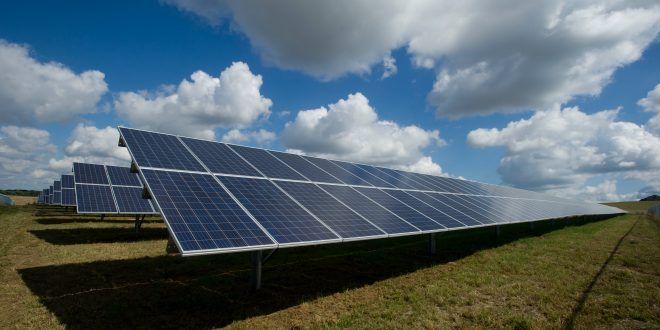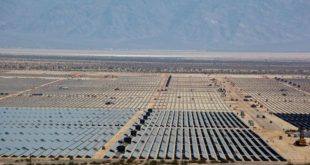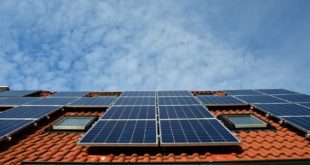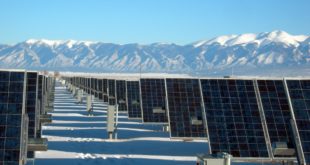In the wake of September’s UN Climate Action Summit 2019, held in New York City, addressing the detrimental effects of climate change is a hot topic of discussion around the world. Climate change is a veritable public health crisis, according to the United Nations. The organization claims that, “the impacts of climate change are being felt everywhere and are having very real consequences on people’s lives. Sea levels are rising, coral reefs are dying, and we are starting to see the life-threatening impact of climate change on health, through air pollution, heatwaves, and risks to food security.”
And their claims are not an exaggeration — the last four years were the hottest ever recorded, and worldwide carbon emissions have increased by 20% within the same timeframe. Therefore, government leaders are scrambling for solutions, and renewables are a shining example of the possibilities that exist. Renewable energy, including solar power, will allow for improved air quality and water purity around the globe, effectively equating better public health.
But reducing the effects of climate change is a job for everyone, from government officials to activists and corporations of all sizes. Fortunately, many forward-thinking companies, resorts, and organizations are switching, or have made the switch, to 100% renewable energy in recent years. In fact, renewable energy buying at the corporate level broke records in 2018, as global corporations purchased 13.4 gigawatts of clean energy via long-term contracts. Interestingly, resorts and hotels across the U.S., including Maine’s Cliff House Resort & Spa and luxury Las Vegas hotels, are emerging as unlikely leaders in corporate solar energy.
Alternative Energy, Climate Change, and Global Health
Embracing renewable energy could be a key factor in improving public health on a global scale. Healthcare professionals are among those calling for greater accountability at the intersection of climate change and global health. While the primary focus of climate change is typically centered around environmental factors, such as rising ocean levels and the melting of polar ice caps, climate change experts believe that shifting the conversation towards public health consequences will inspire greater change.
Increasingly, the effects of climate change are becoming personal rather than solely environmentally based. Around the globe, we have seen rising rates of infectious diseases, childhood diseases, and heat-induced heart attacks, all of which can be directly attributed to climate change. The Centers for Disease Control and Prevention (CDC), in fact, report that rising temperatures, increasing levels of carbon dioxide, and more extreme weather are linked to a variety of health threats. These threats range from malnutrition and respiratory allergies to mental health impacts.
The good news is that solar energy may be a viable solution to the global health crisis stemming from climate change. In March 2019, Healthcare in America identified the numerous human health-related advantages of solar power, including better air quality and increased food security. There may be economic benefits as well, as the cost of solar panel installation continues to decrease.
Revenue and Economics within the Solar Energy Industry
And as long as capitalism reigns supreme around the globe, framing the discussion of climate change around economic factors may be beneficial. Green building and alternative energy are growing in popularity as more and more businesses understand the cost benefits of eco-conscious technology. Hotels and resorts, in particular, are jumping on the alternative energy bandwagon en masse in an effort to reduce carbon emissions while increasing their bottom line.
In recent years, Las Vegas has emerged as a leader in the realm of corporate environmental initiatives. For example, the Palazzo Hotel on the Las Vegas Strip is considered the nation’s most eco-friendly hotel. The Wynn was poised to follow suit with its multi-use development, Paradise Park, set to run on 100% renewable energy. Wynn would have offset the energy used to operate Paradise Park by purchasing energy credits from a 160-acre solar energy plant in Southern Nevada. Unfortunately, revenue concerns caused Wynn Resorts to scrap its Paradise Park project as of late 2018.
According to Gaming Today, Wynn Resorts chairman and CEO Steve Wynn said that Paradise Park represented just a small step toward his company’s dedication to environmental stewardship. “The use of renewable energy is a significant part of the future management of our energy needs in all Wynn developments,” Wynn said. It’s unclear if the company will continue its commitment to utilizing renewable energy on future projects, such as its planned 400,000-square-foot convention center, set to open in January 2020.
Solar Energy Technology into the Future
The solar energy that powers huge buildings such as Las Vegas resorts is typically harvested via concentrating solar power (CSP) systems. CSP systems use converted thermal energy in order to produce electricity. Further, “CSP systems can store energy in batteries that can be tapped for energy on demand, which helps the systems more consistently meet local power demands, especially during peak usage times,” reports Ohio University.
On a global scale, the increased use of CSP systems can help fuel the push towards reducing the effects of climate change. And by harnessing solar energy and other alternative fuel sources, corporations can lead the way towards improved public health worldwide.
 Alternative Energy HQ solar power for homes, wind energy, and bio fuel issues
Alternative Energy HQ solar power for homes, wind energy, and bio fuel issues







One comment
Pingback: The Connection Between Solar Power and Public Health